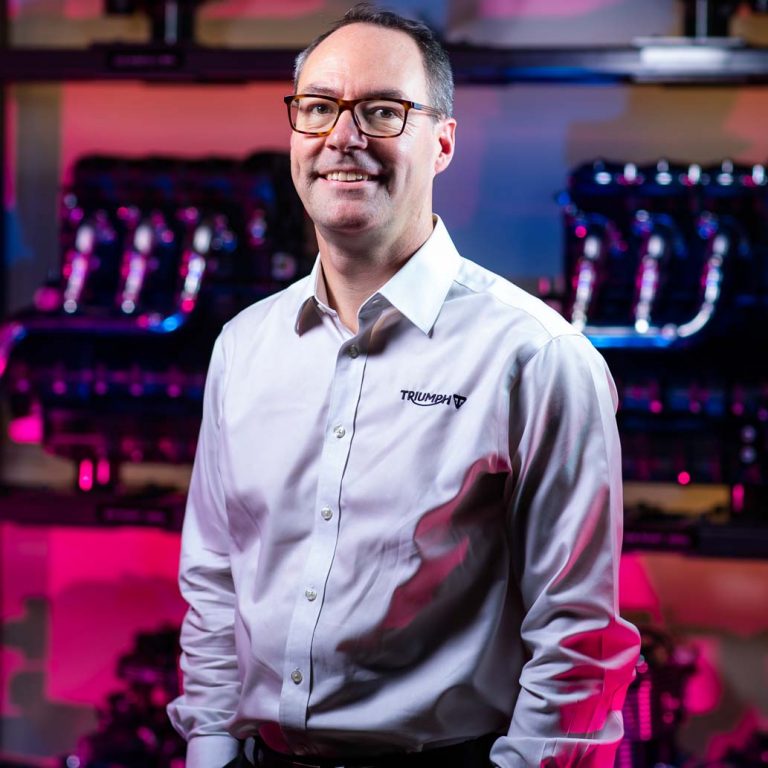Triumph certainly lives up to its name: In 2016-2017, 63,400 bikes were sold. As the phrase British-owned marque has diminished almost to nothing, today, Triumph’s HQ for R&D and design, is a vibrant hub of technicians collaborating with mechanics – who are no strangers to Swarfega – talking bikes, sharing knowledge and contemplating symbiotic collaborations with future technology.







